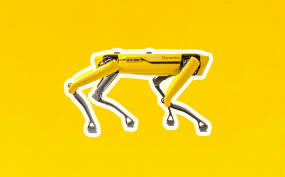Source: which-50.com
Rocos, an Auckland based robot operations software platform, is partnering with US robotics leader Boston Dynamics to provide remote mission design and execution as well as teleoperation functionality, for the famous “Spot” autonomous robots.
As a mobile, durable, and customisable robot, Spot was built by Boston Dynamics to go where other robots cannot. Coupled with the Rocos platform, Spot can now be easily managed from a remote location. Missions can be designed and edited on the fly, and sensor data collected on the mission can be accessed by remote teams.
Spot can also be manually tele-operated to investigate issues, capture new data, or be redirected as required.
“The age of autonomous robots is upon us. We’re working with organizations like Boston Dynamics to help accelerate the adoption of robotics. By connecting robots to the cloud, we can help them combine a cloud software layer with robotics to achieve physical automation at scale. Our customers are augmenting their human workforces to automate physical processes that are often dull, dirty, or dangerous,” Rocos CEO David Inggs said.
The importance of autonomous robots has been highlighted during the COVID-19 pandemic where many have been used to encourage social distancing, clean public spaces and hospitals, and even deliver vital medication.
“We’re excited to see Rocos enabling key features for Spot and our industry partners. The industry applications we’re exploring with Rocos will see this important technology create new efficiencies for businesses around the world,” Boston Dynamics VP of Business Development, Michael Perry said.
Boston Dynamics’ Spot navigates rugged environments to capture data in real-time – feeding this data back into existing business systems, wherever they are located. In the energy sector this provides real-time anomaly detection as well as access to historic digital records for comparison.
In agriculture, farmers can access information such as more accurate and up-to-date yield estimates. This provides access to a new category of automation, and a safer, more efficient business.
Through the use of this joint technology, organisations can plan and schedule missions, remotely operate their robots in the exploration of uncharted territory, capture 3D visualisations and other sensor data in their environment, navigate risky or dangerous terrain, and proactively intervene in required situations. All of this possible in either offline or online modes.
In early testing, the Boston Dynamics team based in the US, navigated previously uncharted terrain in New Zealand, remotely accessing Spot through Rocos’ web UI.
“Robotics companies are producing very capable machines for achieving specific tasks. The missing link is a cloud-based platform to connect, monitor and automate the activities of a fleet. With Boston Dynamics and Rocos, organisations can now design, schedule and manage inspection missions remotely,” Inggs said.
